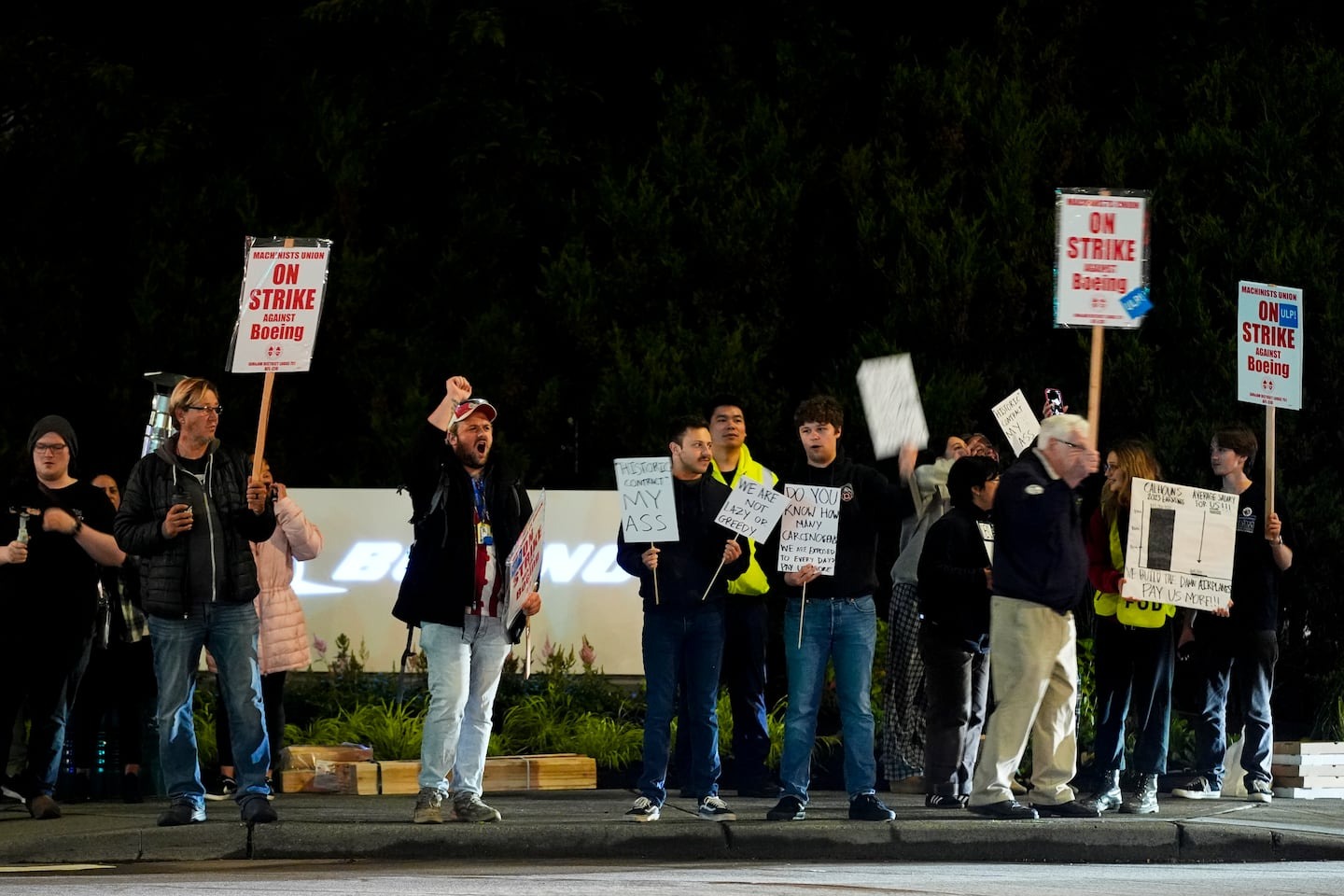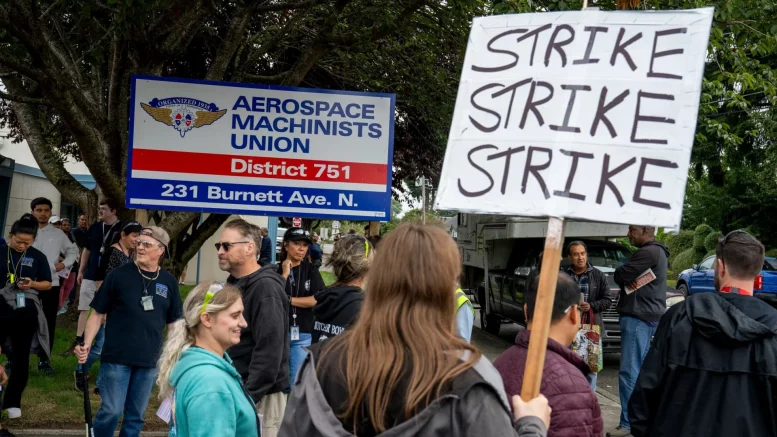Workers in Seattle and Oregon overwhelmingly rejected a tentative agreement proposed by Boeing and the International Association of Machinists and Aerospace Workers on Sunday by 94.6 percent.
More than 30,000 Boeing workers prepare to strike as new labor deal rejected, consequences could be catastrophic
More than 30,000 Boeing workers are preparing to strike on Friday, halting production of most of the company’s planes. The decision comes after workers decisively rejected a proposed new labor contract. It will be a costly blow for Boeing, which is struggling to restore its manufacturing capacity and reputation after a string of safety crises.
Workers in Seattle and Oregon rejected a tentative agreement presented by Boeing and the International Association of Machinists and Aerospace Workers by 94.6 percent. However, 96 percent of workers voted to strike, well above the two-thirds threshold needed to halt work.
“We will strike at midnight,” IAM District 751 President John Holden said at a press conference announcing the vote. He called the action “a protest against unfair labor practices,” alleging “discriminatory practices, forced interrogations, illegal surveillance, and violation of promised benefits” at the plants.
Boeing’s commercial airplanes chief executive, Stephanie Pope, previously said the proposed agreement was “the best contract we’ve ever offered.” She explained that the company had deliberately taken a new approach to negotiations, abandoning its previous strategy.

The preliminary agreement included a 25% pay increase and better health and pension benefits, but the union insisted on a rise of about 40%. Workers complained that the offer did not compensate for the increased cost of living.
The vote was a significant defeat for CEO Kelly Ortberg, who has been on the job for just five weeks. The day before the vote, he urged employees to accept the proposed contract, warning of the potential consequences for the company’s recovery.
Under the terms of the tentative agreement, Boeing committed to locating production of its next commercial jet in the Seattle area, a move that would rekindle worker favor after moving 787 Dreamliner production to non-union South Carolina.
If approved, the deal would be the first fully negotiated contract for Boeing workers in 16 years. The previous strike, in 2008, lasted nearly two months. The financial impact of the current strike depends on its duration. Jefferies analyst Sheila Kahyaoglu estimates that a 30-day strike could cost Boeing $1.5 billion and destabilize suppliers and supply chains. Approval of the deal could result in annual losses of $900 million. Boeing has already lost about $8 billion this year and faces mounting debt and production problems due to defects and shortages of materials and labor.
Boeing: From Breakthroughs in the Aviation Industry to Modern Problems and Solutions
Boeing, one of the world’s largest aerospace manufacturers, was founded in 1916 in Seattle, USA. Since then, the company has become a key player in the aviation and aerospace industries, offering a wide range of products, including commercial and military aircraft, as well as satellites and defense systems.
The company is known for its innovations in aviation, such as the development of iconic aircraft models, including the Boeing 747, which first set the standard for wide-body airliners. In recent decades, Boeing has continued to innovate, creating more efficient and environmentally friendly aircraft, such as the Boeing 787 Dreamliner, which features high fuel efficiency and passenger comfort.

However, Boeing has faced significant challenges in recent years. A series of accidents and safety issues, including the 737 MAX, have left the company at the center of an international scandal. These events have resulted in significant financial losses and the need to revise manufacturing processes and quality standards.
Boeing is working hard to restore its reputation and improve its products by investing in new technology and innovation. The company is also taking steps to address social and environmental issues, such as reducing its carbon footprint and raising labor standards.
Through all the challenges and changes, Boeing remains a symbol of aviation achievement and an industry leader, committed to restoring and continuing its long and distinguished history.

